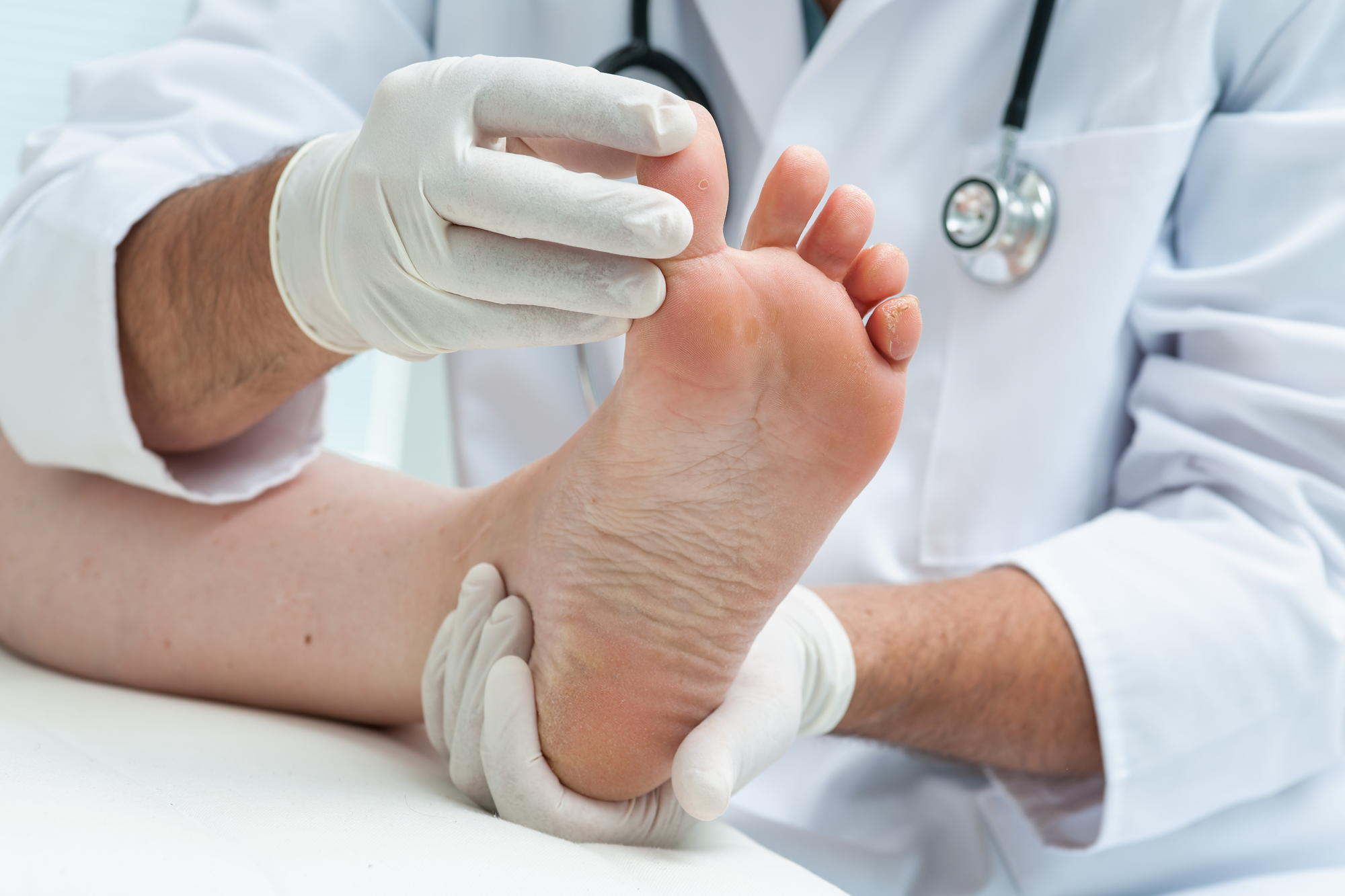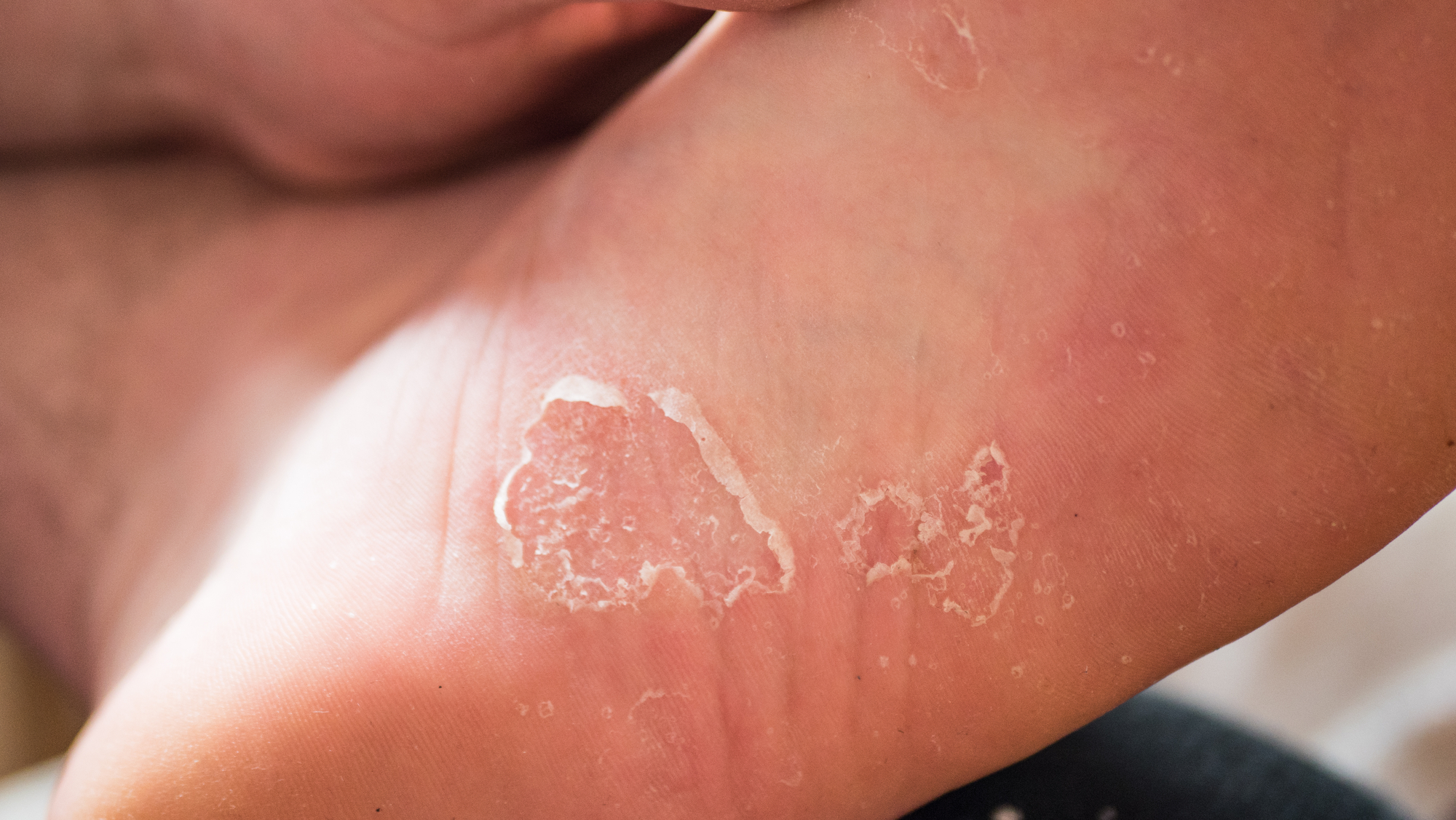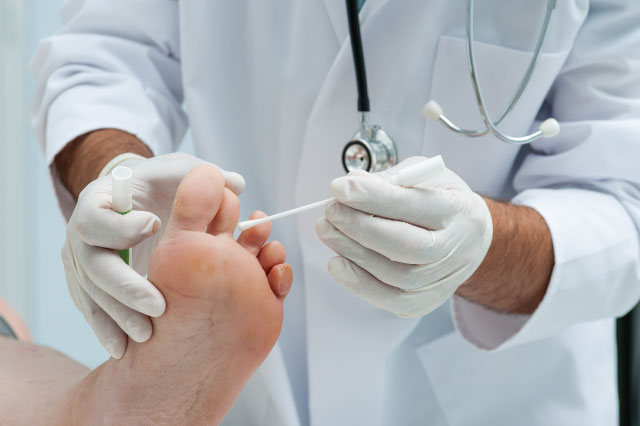Athlete's Foot Infection Services
There are three main types of athlete’s foot. Each type affects different parts of the foot and may look different.
What is Athlete's Foot Infection?
Athlete’s foot infection is a rash on the skin of the foot. It is the most common fungal skin infection. Athlete’s foot is caused by a fungus that grows on or in the top layer of skin. Fungi grow best in warm, wet places, such as the area between the toes. Athlete’s foot spreads easily. Most often, people get it by walking barefoot on contaminated surfaces near swimming pools or in locker rooms. The fungi then grow in your shoes, especially if your shoes are so confining and not breathable.
THE THREE TYPES OF ATHLETE’S FOOT
Not all skin problems on the foot are athlete’s foot. If you think you have athlete’s foot but have never had it before, it’s a good idea to have your doctor look at it.

TYPE 1:
Toe Web Infection
Toe web infection usually occurs between the fourth and fifth toes. The skin becomes scaly, peels, and cracks. Some people also may have an infection with bacteria. This can make the skin break down even more.

TYPE 2:
Vesicular Infection
Vesicular infection usually begins with a sudden outbreak of large fluid-filled blisters under the skin. The blisters are usually on the top of the foot. But they can appear anywhere on your foot. You also can get a bacterial infection with this type of athlete’s foot.

TYPE 3:
Moccasin-Type Infection
Moccasin-type infection may start with a little soreness in your foot. Then the skin on the bottom or heel of your foot can become thick and crack. In bad cases, the toenails get infected and can thicken, crumble, and even fall out. Fungal infection in toenails needs separate treatment.
Take these symptoms seriously and see a podiatrist right away. A podiatrist offers simple, painless tests for athletes foot and other issues related to foot wounds. The faster you seek treatment for a foot wound, the better your prognosis will be.
Your Podiatrist is Your Partner in Treating Your Athlete's Foot Infection
Most of the time, a doctor can tell that you have athlete’s foot by looking at your feet. He or she will also ask about your symptoms and any past fungal infections you may have had. If your athlete’s foot looks unusual, or if the treatment did not help you before, your doctor may take a skin or nail sample to test for fungi.
Treatment & Prevention Options for Athlete's Foot Infections
HOW DO YOU TREAT ATHLETE'S FOOT?
You can treat most cases of athlete’s foot at home with over-the-counter lotion, cream, or spray. In bad cases, your doctor may give you a prescription for pills or for medicine you put on your skin. It is important to use the medicine for as long as your doctor tells you to, as this will help make sure that you get rid of the infection.
How to Prevent Athlete's Foot from Coming Back
3 Convenient Locations
Reisterstown
Address:
4 Glyndon Drive, Suite 2A
Reisterstown, MD 21136
Towson
Address:
7600 Osler Drive, Suite 105
Towson, MD 21204
Baltimore- Rotunda
Address:
711 West 40th St. Suite 351
Baltimore, MD 21211
Contact the Family Podiatry of Maryland Team
Interested in booking at one of our three convenient locations? Feel free to send us a message so we can reach out to you as soon as possible! We're here to help with all your foot and ankle needs.
